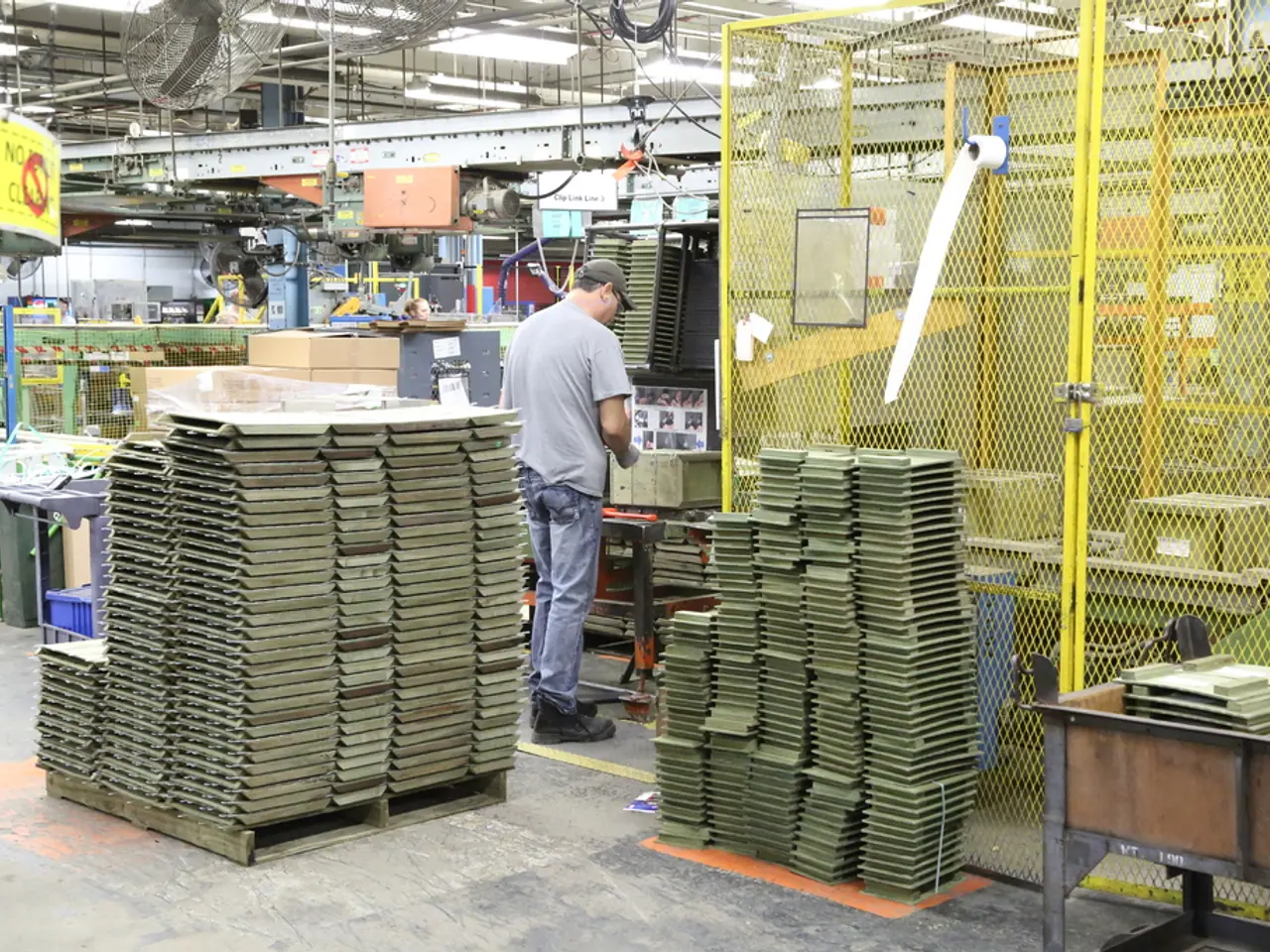Differentiating Productivity and Efficiency: An Explanation of Their Key Distinctions
In the realm of business, two crucial concepts often come into play: productivity and efficiency. While they may seem interchangeable, they each hold distinct meanings and importance.
Productivity is a metric used to gauge the performance of an employee, team, or company based on the number of outputs (goods and services) produced and the inputs (time or energy) it took to produce them. In essence, productivity measures "how much" is produced.
On the other hand, efficiency focuses on producing the maximum useful output with the minimum waste of resources, emphasizing quality and resource optimization rather than just quantity. Efficiency is a refined metric of how efficiently an employee can handle a task, or in other words, "how well" resources are used to produce valuable output.
Measuring Productivity and Efficiency
To measure productivity, managers typically calculate:
where output could be units produced or tasks completed, and input is often time or labor hours. For example, how many units an employee produces per hour is a productivity measure.
To measure efficiency, the formula is:
This measure accounts for quality by focusing on useful or functional output relative to resources consumed, helping managers evaluate how well resources are utilized and to minimize waste.
The Importance of Both Productivity and Efficiency
While high productivity levels are the goal for many managers and team members, it is essential to watch for both efficiency and productivity when tracking outputs. A team member who produces a high quantity of outputs may not necessarily produce high-quality outputs if the focus is solely on productivity rather than efficiency.
On the other hand, your most efficient employee could complete half as many tasks in the same time as your most productive employee, but those tasks could bring the highest return for your company. Efficiency is the production of goods and services with the least amount of waste, where waste refers to many things including time, materials, and money.
Tools for Tracking Productivity and Efficiency
Employee productivity tracking can be done through automation, such as with Hubstaff, which records activity, projects, and tasks as team members track their time. This tool can also aid in measuring remote employee productivity.
Moreover, Hubstaff could help reduce overtime costs by ensuring that employees are spending their time effectively. Productive people use Hubstaff to reach goals faster with time tracking and work management.
The Role of Managers
As a manager, your role is to push your team members to focus on efficiency and quality of work rather than churning out more pointless products. This involves encouraging time management, masterful prioritization, and confidence in their work.
Instead of judging team members solely on their hours and not their efficiency during those hours, it's crucial to inspect the quality of work rather than just the amount. Sometimes, less is more.
In 2020, the average activity rate for Hubstaff customers was 49.6%. This statistic underscores the importance of tracking productivity and efficiency to ensure that your team is working effectively and efficiently.
Productivity metrics are helpful, but they can only tell you so much about how your team is tackling their workload. They should be used in conjunction with an understanding of the quality of work being produced and the efficiency with which it is being handled.
Ultimately, tracking both productivity and efficiency helps managers optimize performance and resource allocation in business operations. By focusing on both, you can foster a team that produces high-quality outputs while minimizing waste and ensuring that resources are used effectively.
[1] Productivity vs. Efficiency: What's the Difference?
[2] Productivity vs Efficiency: Why Both Matter
[3] How to Calculate Productivity and Efficiency
- To optimize resource allocation and foster a productive team, consider using tools like Hubstaff for time tracking and activity monitoring, helping in measuring both productivity and efficiency.
- In the blog post titled "Productivity vs Efficiency: Why Both Matter," delve into education-and-self-development and personal-growth topics, learning about the importance of balancing productivity and efficiency in the workplace.
- As a manager, focus on promoting personal-growth and productivity by training your team on time management, prioritization, and quality of work, ensuring they prioritize efficiency alongside high-output performance.




